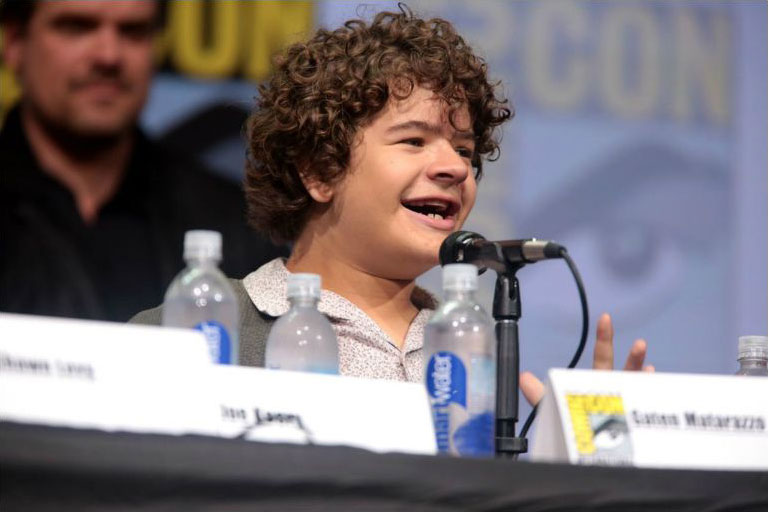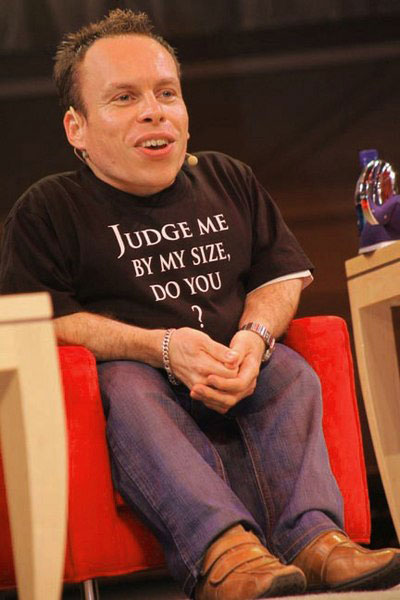In today's media industry, diversity and inclusion are hot topics, but unfortunately, disability representation is still largely forgotten when it comes to Hollywood's biggest blockbusters. While disability increasingly features in the plots of up-and-coming new films, able-bodied actors are disproportionately cast to play these roles. Entertainment has a long way to go in the fight for positive disability representation and inclusion of actors with lived experiences of disability.
Characters with Disabilities
Almost 20% of Americans identify as living with a disability. Despite this, in 2017, an Annenburg Inclusion Initiative study showed that only 2.5% of characters from 100 films had disabilities. On-screen disability remains more limited than is accurate to the real world.
Many of the characters who make up the limited disability representation we see in films are little more than bit players. They're extras with no names beyond "amputee number one" or "hospital patient three." This can feel belittling and reductionist to viewers and actors who live with disabilities, and who know that their stories and identities add up to much more than a simplistic disability-first label.
The Struggles Faced by Actors with Disabilities
Sadly, many actors with disabilities face discrimination that prevents them from being cast in representative roles. Able-bodied actors are trained in mannerisms and movement so that they can portray characters affected by disability more convincingly, while actors who live with disabilities are denied the chance to give greater authenticity to roles and stories that reflect their own experiences, and they are also denied opportunities to portray able-bodied characters.
When actors with disabilities are able to find acting work, often they struggle against being typecast. While their able-bodied counterparts are given varying and diverse opportunities, actors with disabilities may find that they are repeatedly asked to play the same kinds of roles with little scope for career growth. Other times, actors remain uncast by production studios that operate under misconceptions about liability and capabilities.
Why Disability Film Representation Matters
Disability representation in film is instrumental in shaping the way that our culture understands and responds to disability in the real world.
The role of disability representation in film and television is formative and important. When entertainment programming includes disability authentically as a normal part of life, the experience of disability begins to be normalized. This can help to reduce social stigmas and discrimination.
Additionally, disability's role as a prominent part of the real world makes it a necessary inclusion to realist cinema. When movies fail to include characters and actors who live with disability, they lose the authenticity of real-world representation.
Some of the film industry's best actors with disabilities
Jameela Jamil

Jameela Jamil began her on-screen career as a television producer on music and pop culture T4 in the United Kingdom. Soon, Jameela was recruited to join BBC Radio 1 as a DJ, and now fans know her best for her role as Tahani Al-Jamil on hit comedy show The Good Place.
Jameela Jamil lives with a genetic connective tissue disorder called Ehlers Danlos Syndrome (EDS). EDS can cause symptoms ranging from increased skin fragility and elasticity, to recurrent joint dislocations, to life-threatening cardiac complications. Jameela has shared her experiences with hyperflexible joints and loose skin on social media.
When she isn't acting, Jameela works hard to improve body positivity. Through her "I Weigh" campaign, Jameela fights for radical body acceptance, diversity, and inclusion.
Gaten Matarazzo

Gaten Matarazzo began his career on the Broadway stage, playing Benjamin in Priscilla, Queen of the Desert and Gavroche in Les Misérables. Now, Gaten is best-known for his portrayal of Dustin Henderson in Netflix's popular Stranger Things.
Gaten Matarazzo was born with Cleidocranial Dysplasia (CCD), a condition shared by his Stranger Things character. CCD affects skull and facial growth, and the development of bones and teeth. As a result of his condition, Gaten lacks collar bones and wears false teeth over his baby teeth.
Gaten is open about his experiences with Cleidocranial Dysplasia and the casting discrimination the condition has sometimes led him to experience. He works to spread awareness for the condition and provide positive representation for other young, hopeful actors who live with disability.
Michael J. Fox

Though he has starred in a number of films and television shows, Michael J. Fox is probably best-remembered for his role as Marty McFly in the 80s Back to the Future film series. Since then, Michael has worked in voice-over acting in films including Stuart Little and Atlantis. He has earned Emmy nominations for his recurring role in The Good Wife, and in 2010 he was appointed an Officer of the Order of Canada.
Michael J. Fox was diagnosed with Parkinson's Disease in 1992 at the age of 31. Parkinson's Disease is a central nervous system disorder causing disruption to muscle control and movement, often resulting in the development of severe tremors.
Michael J. Fox has become a passionate advocate for Parkinson's awareness and research. He is the founder of the Michael J. Fox Foundation, and his advocacy work has earned him an honoris causa doctorate from Karolinska Institute in Sweden.
Warwick Davis

Warwick Davis is a film industry icon, having starred in many of this generation's best-loved movies. Warwick has had roles in Star Wars, The Chronicles of Narnia, The Hitchhiker's Guide to the Galaxy, and more. In several of the films he has worked on, Warwick has actually played multiple roles. For example, he portrayed both Filius Flitwick and goblin Griphook in the Harry Potter series.
Warwick Davis lives with a rare form of dwarfism called Spondyloepiphyseal Dysplasia Congenita (SED), which causes a failure in the formation of bone endings, resulting in short stature and a number of health complications. Warwick has been open about his experiences with dwarfism in the entertainment industry.
Beyond his acting work, Warwick Davis is a co-founder of Little People UK, a charitable organization that provides support to people and families affected by dwarfism.
Do you want to know more about disability in film? The Ford Foundation is working towards improving disability media inclusion.
Most of the stories here on LiveQuickie.com were submitted by readers. Do you have a story to tell? We'd love to hear it. Submit your story here.